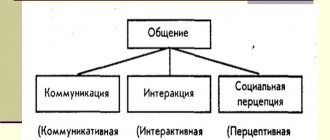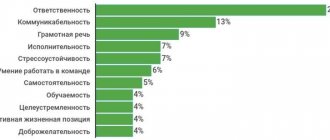Every loving parent strives to ensure the safety of their child. And that's okay. The situation becomes abnormal when the child is protected from everything that could potentially carry even the slightest risk, for example, a broken knee.
Of course, parents have a responsibility to ensure that their child is not placed in situations where he or she could be seriously injured. For example, taking a 2-year-old child to a playground for 5-8 year olds is dangerous. But here the prudence of an adult comes into play. We’ll talk about how excessive parental care manifests itself and what it can lead to.
The intention to overprotect is usually justified by good intentions - after all, children cannot yet make decisions for themselves and ensure their safety. It seems that the purpose of overprotection is to protect the child from any harm. However, on the other hand, parents must not only take care of their children, but also teach them to identify risks, as well as take responsibility for their actions. These lessons are best taught through life experience. If we constantly follow children at arm's length and are ready to catch them at any moment, how will they gain this experience? And without this experience, they will not develop skills of responsible behavior, independence and self-esteem. Children may develop the feeling that they cannot make the right decisions because they simply were not allowed to do so.
You do not allow the child to make efforts and help without his request
I saw such an example. At a bus stop, a boy of two and a half to three years old is trying to climb onto a bench. Myself! Doesn't ask anyone. Mommy comes up with the question: “What are you doing?” The child admits: “I can’t climb.” “And it won’t work,” says his mother, joyfully picking him up by the armpits and sitting him on the bench. Everyone is happy.
If repeated regularly, this situation will most likely lead to atrophy of the child’s will and abilities. As a result, you can also get a strong charge of aggression and irritation, because independent action and effort are a need of a growing organism, necessary for survival. Such a need cannot be blocked with impunity.
Protect your child from any shocks, constantly regret
At an early age, at one and a half to three years, the child tries to be independent: he tries to open the door, insert the key into the lock, get out an interesting thing. When things don’t work out, she sometimes cries and becomes hysterical. In this case, the parents’ overprotectiveness manifests itself in the fact that they do the work instead of him so that the hysteria stops: they take out a toy from the shelf, assemble a complex construction set. Some parents begin to act proactively, and then the child grows up calm, joyful and without hysterics. An illusion of well-being arises.
Parents protect in different ways:
- They do not talk about sad or sorrowful events, so as not to traumatize the psyche. So parents can hide from their child for months or years that their beloved grandfather has died.
- They protect you from household chores and responsibilities: “He still has time to wash the dishes.” Apparently, they are afraid that the child will get tired of this task and in the future will not want to do anything around the house. Or, on the contrary, he will get attached to this business and become a cleaner.
- They do not allow the child to fall, make mistakes, or get bad grades at school. These are parents who are always at arm's length from the baby and manage to catch him before he falls; who will bring the child’s homework to perfection in order to avoid criticism and bad grades.
Features of manifestation
Excessive care and control over a child can manifest itself in different ways. In psychology, according to the characteristics of its manifestation, overprotection is divided into two opposing groups: indulgence and dominance.
Pandering Overprotection
Parents make the child the idol of the family, trying to satisfy all his whims, needs and desires. It is customary to save him from any possible troubles, to solve even minor problems, including making any choice for the child.
Such overprotection in family upbringing leads to the formation of inflated self-esteem, pride, the need to attract all attention to oneself and other hysterical character traits. In adulthood, the child is so dependent on the attention of others that he is even ready to attempt suicide in order to achieve his goal.
Dominant overprotection
The family adheres to an authoritarian parenting style. The child must follow many established rules of behavior and prohibitions. He should not question the parent’s words and resist following orders. The child is punished for any mistake. His parents do not consider him as an individual: they do not recognize his abilities, underestimate them, do not praise him for his successes, but they criticize him for every little thing and express their dissatisfaction. Parents maintain such total control, explaining it: “The safety of the child is most valuable.”
Are you afraid that your child will be offended or angry?
A colleague spoke about a mother’s overprotection of her son. Mom wiped her child's bottom at age 12. She did not consider this a problem, she was only worried that the child often freaked out and even beat her. When asked why she wiped the butt of a twelve-year-old boy, she confidently answered that he himself asked her. And if she refuses, he becomes hysterical. This reaction scared her.
Parents' fears that are passed on to children
Children often refuse to do things that don't bring them pleasure and blame it on their parents. The child doesn’t want to put away the dishes and starts to protest - the mother gives up and does everything herself. When a parent is afraid to refuse, the child gains power, and the demands become more insistent and more absurd each time.
My experience of interacting with children under parental overprotection
As a primary school teacher, I quite often meet such students in my practice. It is not difficult to identify them, because the consequences of overprotection are immediately evident, mostly negative.
For example, children who are under strict control at home behave differently at school. At first, they answer the teacher’s questions with caution, rarely raise their hand and show initiative. But as soon as they experience a situation of success and feel the support of the teacher, they lose self-control: they forget that they are sitting in class, having fun, fooling around, do not respond to comments, do not see boundaries in communicating with classmates - they behave as they want, until they again fall under total control.
This behavior prevents these children from fully mastering school material, and their inability to think critically and make decisions limits them from completing certain tasks.
Children whose parents comply with their whims on demand also do not perform well academically. They often refuse to complete a task whenever they fail, are offended by any criticism, and do not want to accept help from the teacher and classmates. This greatly inhibits their intellectual development and the acquisition of new knowledge.
In addition, it is difficult for them to establish communication with peers and make friends: due to their immaturity and touchiness, such children are not accepted into the game, do not listen to their opinions, and do not want to help in lessons and breaks.
It often happens that parents cannot pay proper attention to their children due to work. Then the overprotective grandmother appears, who pampers and takes care of her grandson in every possible way.
Actively manage your child’s learning and monitor his interests
The book by psychologist-educator Lyudmila Petranovskaya “Secret Support” describes an experiment. The psychologist left the parent and preschool child alone in a room where there was a lot of interesting things - toys, manuals. Each pair's activities were videotaped, resulting in four groups of parents.
The first group of parents forbade their children to get up, walk around the room and touch other people's things.
In the second group, the parents themselves brought the child to toys, aids, and offered them games or activities.
Parents from the third group sat and silently watched as the children explored their surroundings.
In the last group, the parents themselves enthusiastically played, examined, studied things and did not involve the child in this process in any way.
Psychologists observed the children for some time after this experiment, and it turned out that children with parents from the fourth and third groups (parents who do not pay active attention to the child) develop best, and worse - with parents from the first and second. Moreover, in the first group the results were even slightly better than in the second, because while sitting the child can at least look at what he wants.
Symptoms
There are a number of symptoms by which experts identify overprotection:
- bans on many types of activities that are aimed at preventing negative consequences;
- inability to trust your child and believe in his abilities;
- control of all children's interests and social circle;
- indifference to the child’s opinion;
- lack of patience with the child’s actions (it’s easier to do it yourself).
You leave your child the best piece of the pie
I recently saw this picture on a bus. A mother and a teenage boy, about fifteen years old, are standing. The mother talks loudly and kindly to her son, who has moved deeper into the bus and answers quietly, abruptly, but also kindly. Here a place opens up next to the woman, and she actively invites a boy to take this place. The boy hesitantly refuses, but quickly gives in and sits down. After all, who can resist an empty seat?
There are many negative consequences from this situation. For a parent, this is neglect of his needs on the part of the child. For a boy, his mother's overprotection will bring difficulties in making moral choices in the future. In adulthood, it is difficult for such a person to give up convenience, although at the same time he quietly loses much more valuable things: he values freedom, but continues to live with his parents; values decency and honesty, but spends money on comfort, pleasure and lives at the expense of others. This creates eternal dissatisfaction with oneself even against the background of external well-being, but also leads to actions that are condemned by morality and law.
Instructions: how to teach a child to handle money
Another situation: a mother wants to instill good taste in her daughter and provide her with a prosperous future. That's why she buys her daughter good clothes, but dresses poorly herself. Everything goes to the child. However, the girl resists: she tries to choose clothes that are more modest and cheaper, not fashionable, and refuses those that her mother imposes. This happens due to feelings of guilt, due to dishonest distribution of benefits.
Therefore, the attitude “all the best goes to children” is harmful. The child's pleasures should not infringe on the parent's comfort and needs, and privileges should be deserved.
What is the essence of the disorder?
Neurasthenia in children is a reaction to external irritating factors, the environment, or any events. It can progress in three directions:
- hypersthenic – increased activity, noisy behavior, emotional arousal. The child loses self-control and shows dissatisfaction for any reason. Constantly changes types of activities, but cannot concentrate on any one activity. Bad mood and irritability predominate;
- hyposthenic – weakness, tearfulness, fearful state. Accompanied by increased fatigue. There is lethargy in movements, a decrease in interest in things that previously caused a surge of emotions;
- transitional - neurasthenia, in which the symptoms and signs of the first two types in children and adolescents appear alternately. There are serious sleep disorders and exhaustion of the nervous system.
In general, this is a psychogenic disorder, the basis of which is a contradiction between the individual and parties significant to him (most likely, close relatives), which is resolved unproductively, unsuccessfully and irrationally. It causes painful, painful experiences. Develops in childhood, during the period of personality formation.
Neurasthenia is a functional, reversible mental disorder in which organic brain damage does not occur.
Painful overstrain of psychophysiological potentials takes the child out of the usual rhythm of life. Unable to meet the high demands of others, he considers himself incapable of overcoming difficulties in advance. There are many reasons for creating such a state, but most often it is relationships with parents.
It is the closest people who unknowingly destroy the child’s inner world. They cannot accept their child for who he is and are strict and demanding. Their children try to meet expectations, but often the demands are too high and do not correspond to their capabilities. Against this background, a disorder develops - neurasthenia.
In children, its symptoms are pronounced, but can be corrected more quickly. For adults, everything is much more complicated. At a conscious age, neurosis of this type can cause much more problems than in childhood.
Without appropriate medical care, adolescents and children develop problems with social adaptation, difficulties in building relationships with peers, and even the development of depression. If the disease is noticed in time and appropriate measures are taken, then the acquired disorders of the nervous system are completely reversible.
You are very worried and worried about your child when you are not around
Another sign of overprotection is when a parent worries about the child all the time. A friend of mine took her child with her everywhere - she always took her to work or left her with her grandmother, never alone. He could only walk on the playground with other children under her supervision. She made sure to attend meetings with her father because she did not trust him. Once we were discussing the army and the life difficulties that everyone has. She said that if she could tie the child to her with a rope, she would do it.
Home alone: should you leave your child alone at home?
Needless to say, her son was incredibly infantile. At the age of 10, he seemed almost mentally retarded: he was lethargic, spoke quietly, could not decide what he wanted from food, and dreamed of going to Eurovision, although he had never performed or played music in his life. To my surprise, he mastered the school curriculum normally; according to tests, his intelligence, although not brilliant, was normal.
Correction of overprotection
Correction of overprotection should include measures to interact with both parents and children. It is carried out using the following methods:
- Consulting parents. The specialist introduces parents to different types of upbringing and talks about their impact on the development of the child’s personality. During such conversations, adults must understand the existing problem, determine the reasons for its occurrence and the harm that overprotection brings to the child.
- Cognitive behavioral psychotherapy. In individual sessions with parents, behavioral errors and the reasons that cause them are discussed, positive and productive behavioral situations are projected that will help maintain confidence, calm and independence. After completing CBT sessions, parents' fears, anxiety and uncertainty should subside.
- Family psychotherapy sessions. They provide training on communication, cooperation and mutual understanding. The goal is to get out of interaction within the framework of the previous model of education. Parents and children complete homework and report to the psychologist about the results.
“Lay out the mattress” and solve the child’s problems for him
A few years ago, there was a series of news discussions on the Internet about a wealthy father who bought his son a car. The first time my son was caught drunk driving. My father sorted it out, but my license was not taken away. The second time, the son had an accident and crashed the car. Thanks to the father's connections, the court recognized that the accident was not the fault of the son. A man bought his son a new car - more expensive than the previous one. In his opinion, his son should have taken care of his expensive car and driven it more carefully. My son hit a man with this car. The father once again saved his son, his license and car were in place. It ended with the son having an accident and falling to his death.
Often overprotection of a child means that a person does not feel the real consequences of what he does. The parent protects the child from problems now, but prevents him from learning responsibility and cause-effect relationships: do “A”, get “B”. However, you can’t argue with death, you can’t persuade it or bribe it.
It’s easier for you to do it yourself than to wait for your child to do it.
This is a common mistake among adults, because the child performs the action either slowly or “wrong.” I really want to do it for him, so that it is faster, more accurate, more correct. Especially in a situation where you have to hurry. As a result, the child loses the opportunity to take responsibility for the result and ceases to respect the adult.
During classes with a children's group, I somehow realized that every time after an exercise I set up chairs alone, and the children ran away merrily. I began to notice how many little things I did for the children: handing out scissors, laying out paper, collecting trash. And this had a negative impact on discipline in the group. When I transferred this work to the guys, disciplinary issues disappeared by themselves.
You do not trust the child’s capabilities and strengths
Here is another case of parental overprotection from my practice. A girl appeared in the preschool group, she looked very fragile, gentle, soft and sweet, I wanted to protect her. Mom complained that she was fearful, anxious and fantasized a lot.
During classes, I began to pay attention to the fact that I was paying attention to her and helping her more than other children. It always seemed to me that if this was not done, then she would not be able to cope on her own: she would not be able to lift the chair and move it, or knead the plasticine. The problem with fearfulness began to be quickly resolved when I shared with my mother my feelings and the desire to help the girl that arises next to her. Mom admitted that she felt the same way. When they stopped caring for the child, the girl quickly became combative, strong-willed, and no longer looked fragile.
What should anxious parents do?
Fragile appearance occurs:
- because of illness
- fragile, weak constitution
- difficult birth
- mature parents
- ideas of relatives (especially grandmothers) about thinness as a disease, ill health
- features in emotional and intellectual development (developmental delays, autism spectrum)
Prevention
To prevent the occurrence of overprotection, parents need to critically assess their psychological state: monitor their fears and anxieties, avoid transferring their complexes and problems from childhood to their child.
Moms and dads should be well aware of the features of child development, in particular, what the zone of proximal development is. On its basis, you can build productive relationships and allow the child to master the necessary social and everyday skills, as well as delegate more and more responsibilities to him, reducing the degree of his participation.
You feel resentful that your efforts and contributions are not appreciated
- “I spent the whole night sewing a Harry Potter costume, and the child didn’t even say “thank you”.”
- “At the table at his birthday party, I tried to entertain his friends, and he sat like a beech.”
- “I was preparing for her graduation, and she went there as a deep favor.”
- “I bought strawberries to please my daughter, but she ate them all, leaving nothing”
This is how resentment towards children usually manifests itself.
If you have discovered such feelings in yourself, you have already begun to struggle with overprotection. This means that you know how to notice an imbalance in the “take-give” balance in a relationship, this is important.
Sometimes parents consider the feeling of resentment unworthy of themselves and brush it off with attitudes: “all children are like this,” “he will outgrow,” “then he will understand how much I love him,” “you need to show care and forgive so that the child learns to be caring.”
In fact, the child does not even notice the parent’s contribution and efforts; he grows up in the belief that all benefits come easily.
Diagnostics
Parents themselves are not bothered by overprotection, and a child until adolescence cannot objectively assess and understand that the model of his upbringing is filled with excessive care and control. Therefore, only specialists can assume and diagnose parental overprotection during the study of the emotional and personal sphere.
The following methods are used for this:
- Conversation. The psychologist talks with the parents, finds out the peculiarities of upbringing, asks about their concerns, complaints, and clarifies information about the diseases and characteristics of the child. The current picture helps determine the presence or absence of hypercontrol.
- Observation. A child under parental overprotection often has certain behavioral characteristics: stiffness, anxiety, obsessive movements of limbs, eyes or lips, reticence, avoidance of eye contact with adults.
- “Family Drawing” technique. Its use reveals overprotection if the child draws the dominant parent first, in the center and in a large size. He depicts himself somewhere nearby, but very small.
- Tests with interpretations. In such methods, the child deciphers the proposed pictures as a situation in his family, where dominance, guardianship and constant control prevail.
- Questionnaires. This is a method for parents, the results of which help to draw conclusions about the type of upbringing, parental attitudes and the degree of their distortion.










